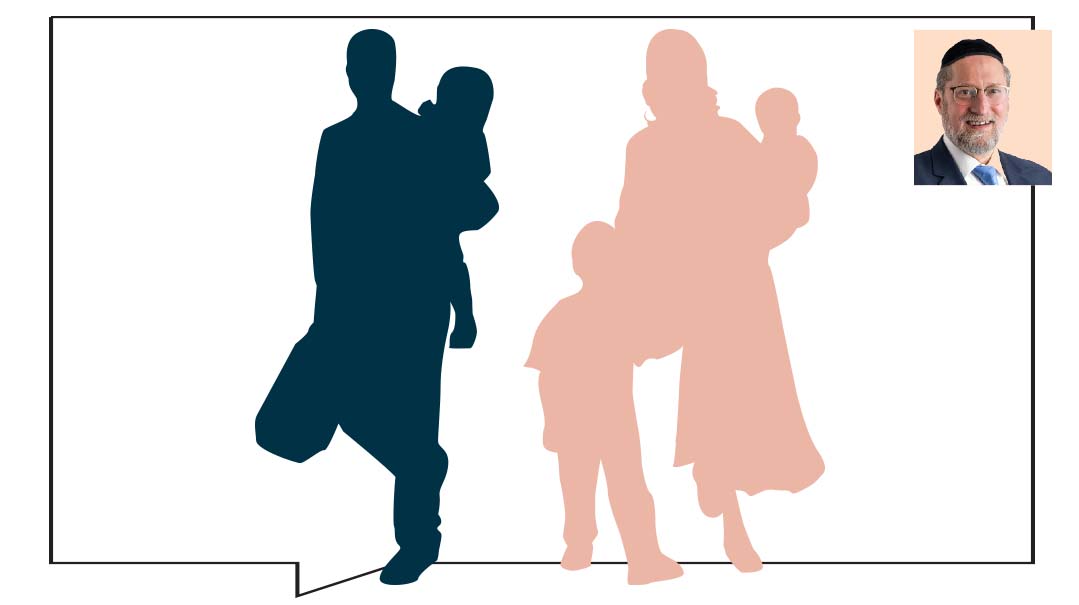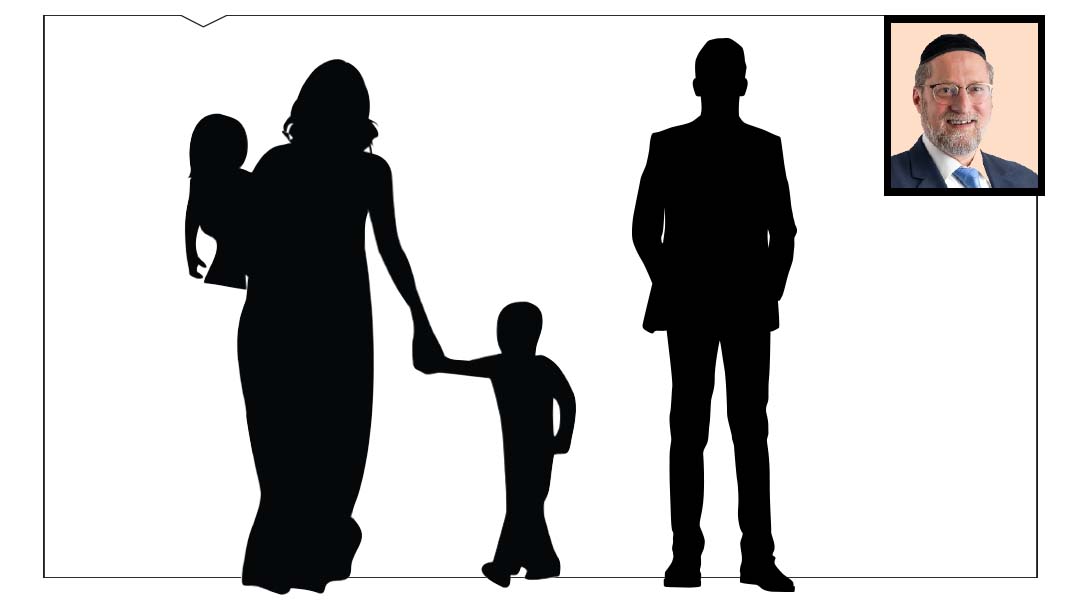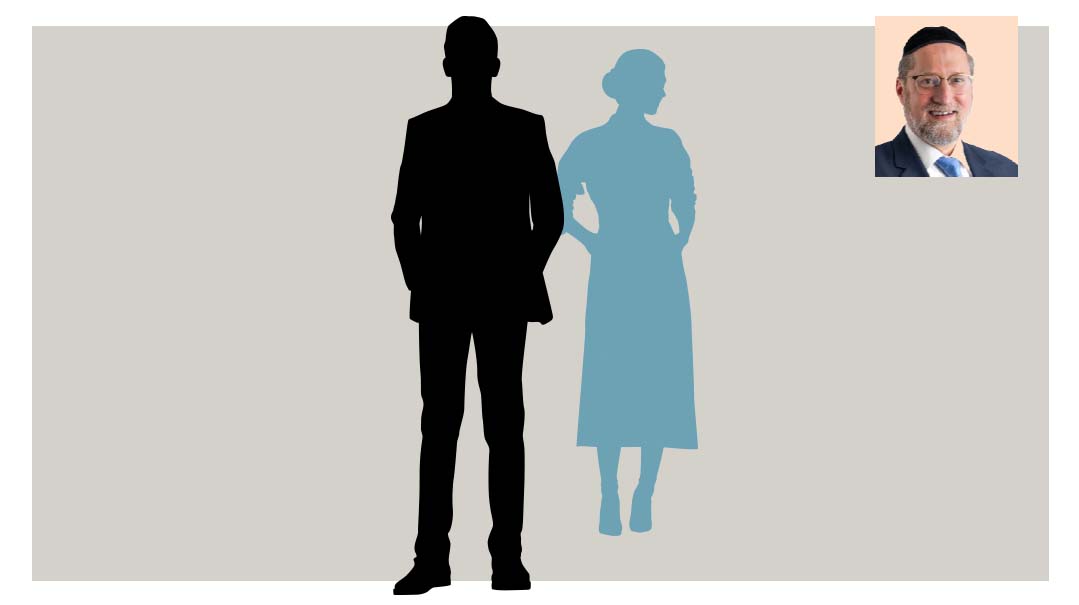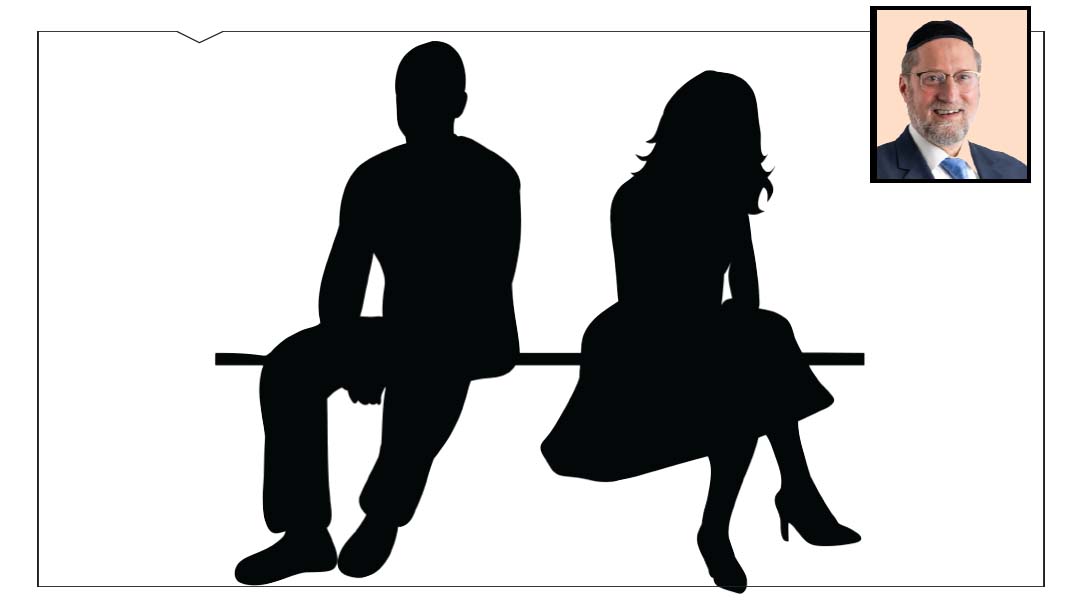It Was So Great in the Beginning… How Do I Get It Back?
| October 5, 2021What’s wrong is that you’re confusing infatuation with love

Written with Zivia Reischer
Rabbi Shafier,
I am 20 years old and have been married for four months. I never dreamed I would be writing to ask marriage advice. The reason I never dreamed it is because I married the perfect guy. He was everything I wanted: a serious learner from a great family, great middos, great sense of humor, tall and good looking and put together too. We just totally clicked as soon as we met and we got engaged after six dates. Our engagement was amazing, I felt like the luckiest girl. I was flying. I was so excited to marry him. Every story he told me was so interesting, every joke was so funny. The wedding and sheva brachos were like a dream.
But now, four months later, everything feels different. I don’t know what’s wrong. He still looks the same and acts the same, but I don’t feel the same anymore. I used to get so excited just seeing his number flash on my cell phone. Now it just feels regular. I mean, it doesn’t really feel like anything. Sometimes, if I’m on the phone with my sister or my friend, I don’t even want to pick up.
I used to watch the clock waiting for him to come home. I loved cooking all his favorite foods and we would sit over supper for two hours, just schmoozing, and not even realize how late it was. I can’t even remember now what we used to talk about. We still schmooze, but it’s not the same.
I feel terrible talking about my husband this way. Don’t get me wrong. He’s a great guy. He’s not abusive and he doesn’t have bad manners and he treats me well. But I get annoyed with him sometimes, about stupid things. Like he sings totally off-key — which for the first few months I didn’t even notice. Now it drives me crazy. I used to think he was so special, I felt so special. Now everything just seems normal and regular.
It’s not like we’re married for ten years and drowning in work and kids. I’m still a newlywed! I walk around with this pit in my stomach. What happened? Why was it so great in the beginning and why did it end? How can I get back to how things used to be? I’m terrified that I’m going to go through life having to pretend to be happy. I look around at all the young couples and I wonder what I’m doing wrong.
First of all, what you’re experiencing is normal and common. You get married, everything is great, but then a little while after the wedding, one spouse (sometimes him, sometimes her, sometimes both) wakes up one morning and thinks, Help, what’s going on here? Why am I not excited anymore? What’s wrong?
Nothing’s really wrong — with your marriage, or with your spouse. What’s wrong is that you’re confusing infatuation with love.
Until now, you were experiencing infatuation. That flying-high feeling — infatuation. That way you hung on to every word he says — infatuation. That sense that he was perfect and could do no wrong — infatuation. That special feeling — infatuation.
Infatuation is instant. You don’t do anything to cause it. It just happens. You just feel it. But it’s also temporary. It has a shelf life — usually not more than six or maybe twelve months. Then it wears off.
So don’t panic. Nothing’s wrong, you’re totally normal. Infatuation always wears off. It’s not a sign of dysfunction or failure.
But now what? If the “high” is over, are you doomed to “pretend to be happy” forever?
Infatuation is not a quirk in human nature. It’s not a weakness or an immaturity. It’s a tool that Hashem designed to serve a very specific purpose. It gives the couple a head start on the often challenging and intense journey of marriage. It’s like the sulfur on a match — it flares up briefly and then goes out. It’s not supposed to last — it’s supposed to light a fire. Infatuation wasn’t designed to last. It was designed to start things off; then the couple has to work on the real bond of love.
When a couple is infatuated, they think everything is great. He thinks she’s perfect; she idealizes him. Because they feel that way about each other, they each act exactly as they should. He showers her with attention, and she treats him with tremendous respect. This gets them and their marriage off to a great start. They’re both happy (thrilled), they both behave ideally toward each other — and it’s so easy.
What’s the point of infatuation if it’s just going to wear off? It shows the couple what they’re supposed to do. In marriage, a man needs to feel that he has the respect of his wife, and a woman needs to feel that her husband loves her . How does an infatuated couple behave? He showers her with attention, loves talking to her and being with her. She treats him like he can do no wrong, values everything about him, and honors him. When the infatuation inevitably wears off, they have a model for how to behave toward each other. A successful relationship will not leave you “pretending to be happy.” The work of marriage will yield a deep, meaningful, satisfying, joyous, and loving bond between you and your husband, and the infatuation stage got you started on the right foot.
Right now, you’re experiencing the stage where the infatuation is wearing off, and that frightens you. But it’s totally normal. In fact, it’s not only normal, it’s inevitable. Hashem programmed people to work that way.
Infatuation was the beginning of your relationship. It’s the perfect way for you to begin your connection. But it’s a temporary assist. Now it’s time for you to work on the real bond between the two of you and create a happy, satisfying, enduring love.
The Second Really Dumb Mistake that Very Smart Couples Make:
They mistake infatuation for love.
But infatuation and love are totally different.
Infatuation takes no time, while love takes a lot of time.
Infatuation takes no work — you just feel it. Love takes a lot of work — it requires sacrifices, giving to the other, putting your spouse’s needs before your own.
And infatuation has a very short shelf life, while love is enduring.
It’s interesting to note that infatuation is not essential to a loving, satisfying relationship. You don’t need it. If you never had it, that doesn’t mean you won’t have a successful marriage. Certainly when infatuation disappears, it doesn’t mean your marriage is doomed. I’ve seen many successful marriages where there was very little (if any) infatuation in the beginning, and the couple went on to build a beautiful bond and a strong, happy marriage. And I’ve seen couples who were head-over-heels, stars-in-their-eyes infatuated, but once the infatuation wore off (often pretty quickly), they did not succeed in creating a real connection. Infatuation is simply not indicative of the future success of the relationship.
People assume that love is infatuation grown up. But that’s not true. Infatuation is a temporary state. In fact, infatuation is measurable: Psychologists can describe the changes that occur in the brain’s neurotransmitters when an individual is in a state of infatuation. Its effect on dopamine and adrenaline are real and measurable. Scientists say that infatuation has an impact on neurochemistry similar to cocaine use. Quite literally, when you’re in that state of infatuation, you’re “high.”
Hashem wants marriages to succeed, so He created many tools to help a couple bond and connect. Infatuation is one of them — it gives you that initial boost to hit the ground running. Some of the other tools are romance, friendship, and appreciation. These tools are designed to help you create a bond of love and lasting happiness in your marriage.
The letter writer wants things “to go back to how they were,” but when a couple works to create a bond of real love, their marriage will be better and stronger than ever before.
(Originally featured in Mishpacha, Issue 880)
Oops! We could not locate your form.






